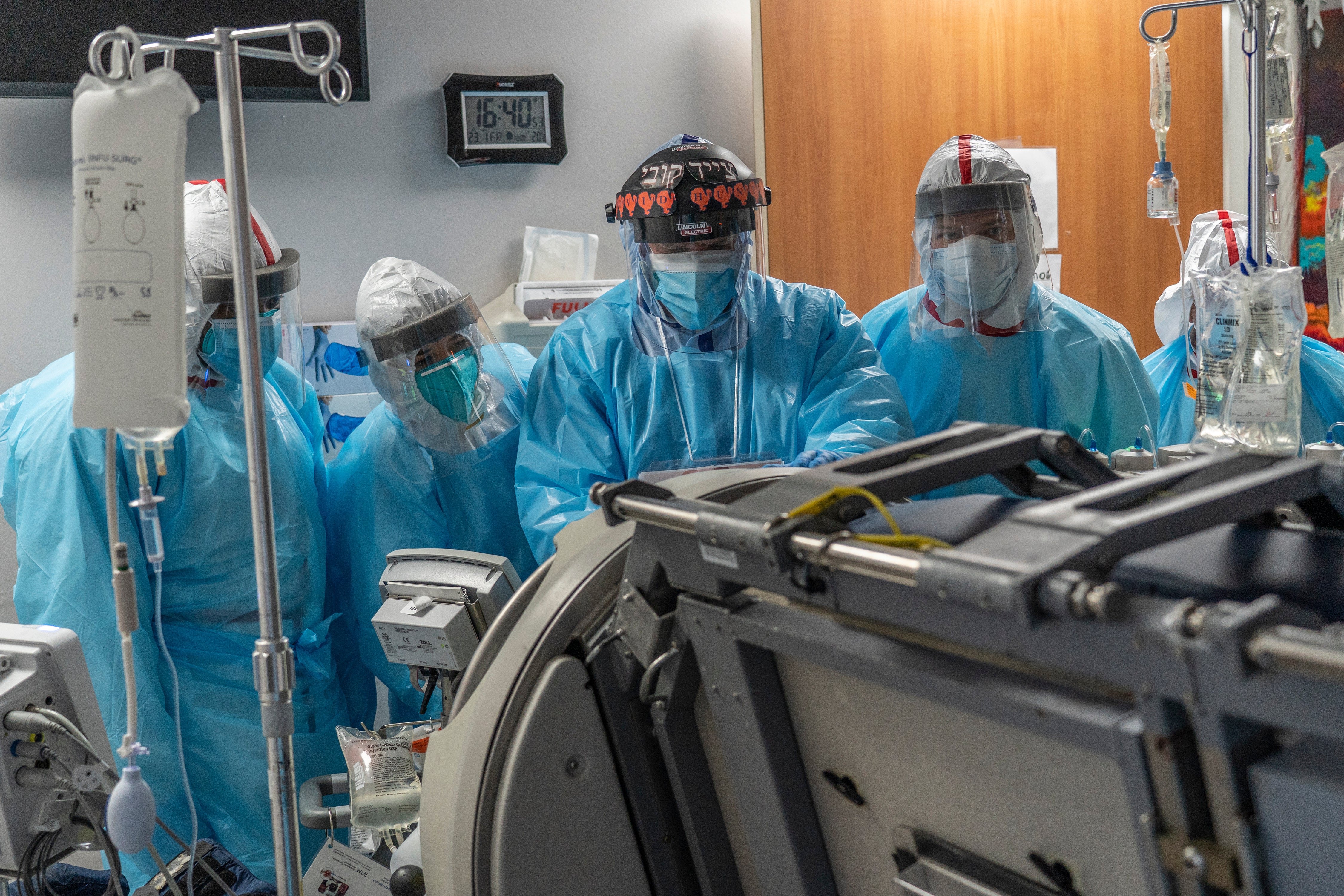People are withdrawing from organ donation after reports of a man mistakenly declared dead
Transplant experts are seeing a spike in people refusing to become organ donors after a Kentucky man almost had his organs harvested despite still being alive

Your support helps us to tell the story
From reproductive rights to climate change to Big Tech, The Independent is on the ground when the story is developing. Whether it's investigating the financials of Elon Musk's pro-Trump PAC or producing our latest documentary, 'The A Word', which shines a light on the American women fighting for reproductive rights, we know how important it is to parse out the facts from the messaging.
At such a critical moment in US history, we need reporters on the ground. Your donation allows us to keep sending journalists to speak to both sides of the story.
The Independent is trusted by Americans across the entire political spectrum. And unlike many other quality news outlets, we choose not to lock Americans out of our reporting and analysis with paywalls. We believe quality journalism should be available to everyone, paid for by those who can afford it.
Your support makes all the difference.Transplant experts are seeing a spike in people revoking organ donor registrations, with their confidence shaken by reports that a Kentucky man nearly had his organs harvested for organs despite still being alive.
In 2021, 36-year-old Anthony Thomas “TJ” Hoover II, was admitted to Baptist Health hospital in Richmond, Kentucky after a drug overdose. He was incorrectly declared dead later that day and taken to theater, where the alarming incident unfolded, according to NPR.
“He was moving around — kind of thrashing. Like, moving, thrashing around on the bed,” Natasha Miller, an organ preservationist in the operating room during said, told NPR.
“And then when we went over there, you could see he had tears coming down. He was crying visibly.” Miller, who works at Kentucky Organ Donor Affiliates (KODA), told the outlet that two doctors refused to perform the organ retrieval after realizing that the donor had wrongly been declared dead.
And while Hoover now lives with his legal guardian, several of the members of KODA quit following the incident, while donor registries in the U.S., and even across the Atlantic, are being impacted after the case was publicized recently, which in turn could cost the lives of those on the transplant list.

“Organ donation is based on public trust,” said Dorrie Dils, president of the Association of Organ Procurement Organizations, or OPOs. When eroded, “it takes years to regain.”
Donate Life America found an average of 170 people a day removed themselves from the national donor registry in the week following media coverage of the allegations – 10 times more than the same week in 2023. That doesn’t include emailed removal requests or state registries, another way people can volunteer to become a donor when they eventually die.
Dils' own organ agency, Gift of Life Michigan, usually gets five to 10 calls a week from people asking how to remove themselves from that state’s list. In the last week, her staff handled 57 such calls, many mentioning the Kentucky case.
After the reports from Kentucky reached France, where citizens must opt-out of organ donation, the number joining the donational refusal registry jumped from about 100 people-a-day to 1,000-a-day in the past week, according to the French Biomedicine Agency.
Dr. Régis Bronchard, an agency deputy director, said the spike “reflects anxiety, incomprehension among the general public” that could have “catastrophic consequences.”

Only about 1% of deaths occur in a way that allow someone to become an organ donor and most people declared dead in a hospital will quickly be transferred to a funeral home or morgue.
Most organ donations are from brain-dead donors, where the person’s brain permanently ceases functioning after a traumatic injury or stroke and ventilators and other machines are used to keep the heart beating during tests.
Only after that declaration does the donor agency assume responsibility for the deceased, looking for potential recipients and scheduling retrieval surgery — while typically nurses at the hospital where the person died continue care to ensure equipment properly maintains their organs until they're collected.
The donor agency and transplant surgeons arriving to retrieve organs must check records of how death was determined. Anyone – donor hospital employees, donor agency staff or surgeons – who sees anything concerning is supposed to speak up immediately.
“This is extremely rare,” Dr. Ginny Bumgardner, an Ohio State University transplant surgeon who also leads the American Society of Transplant Surgeons, said of the Kentucky case.
In operating rooms “the whole process stops” if someone sees a hint of trouble, and independent doctors are called to doublecheck the person really is dead, Bumgardner said. In her 30-year career, “I’ve never had a case where the original declaration was wrong.”